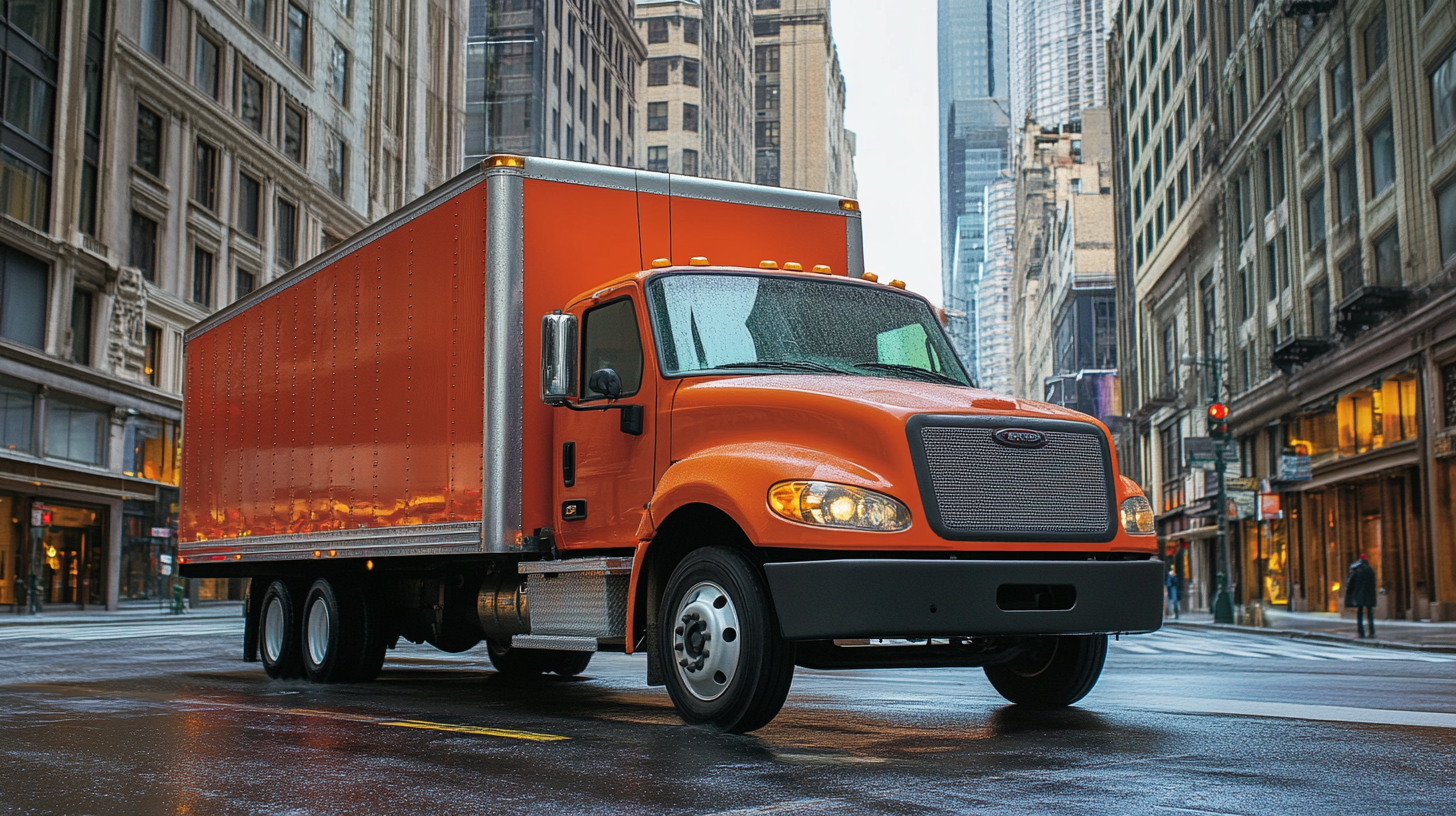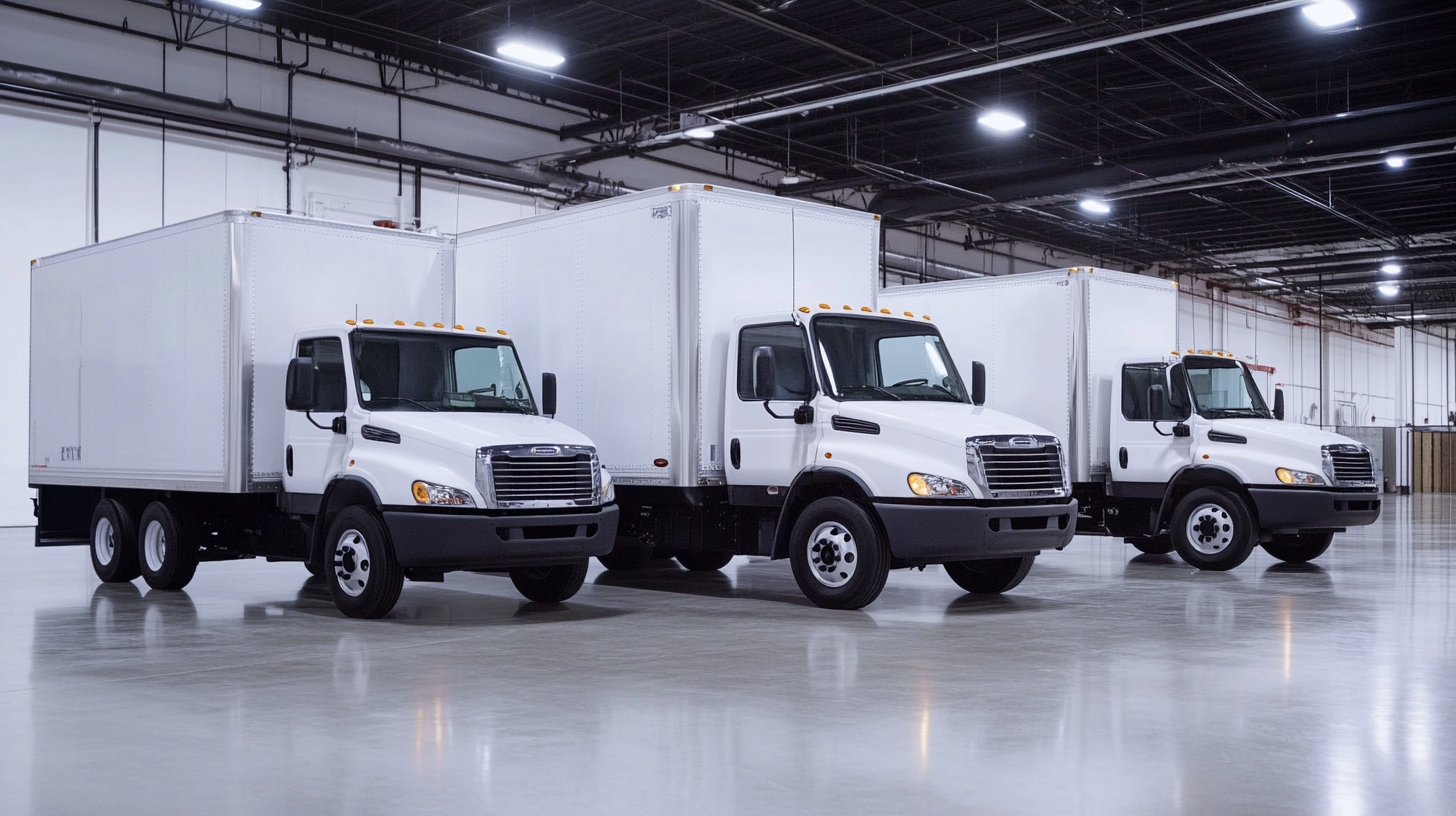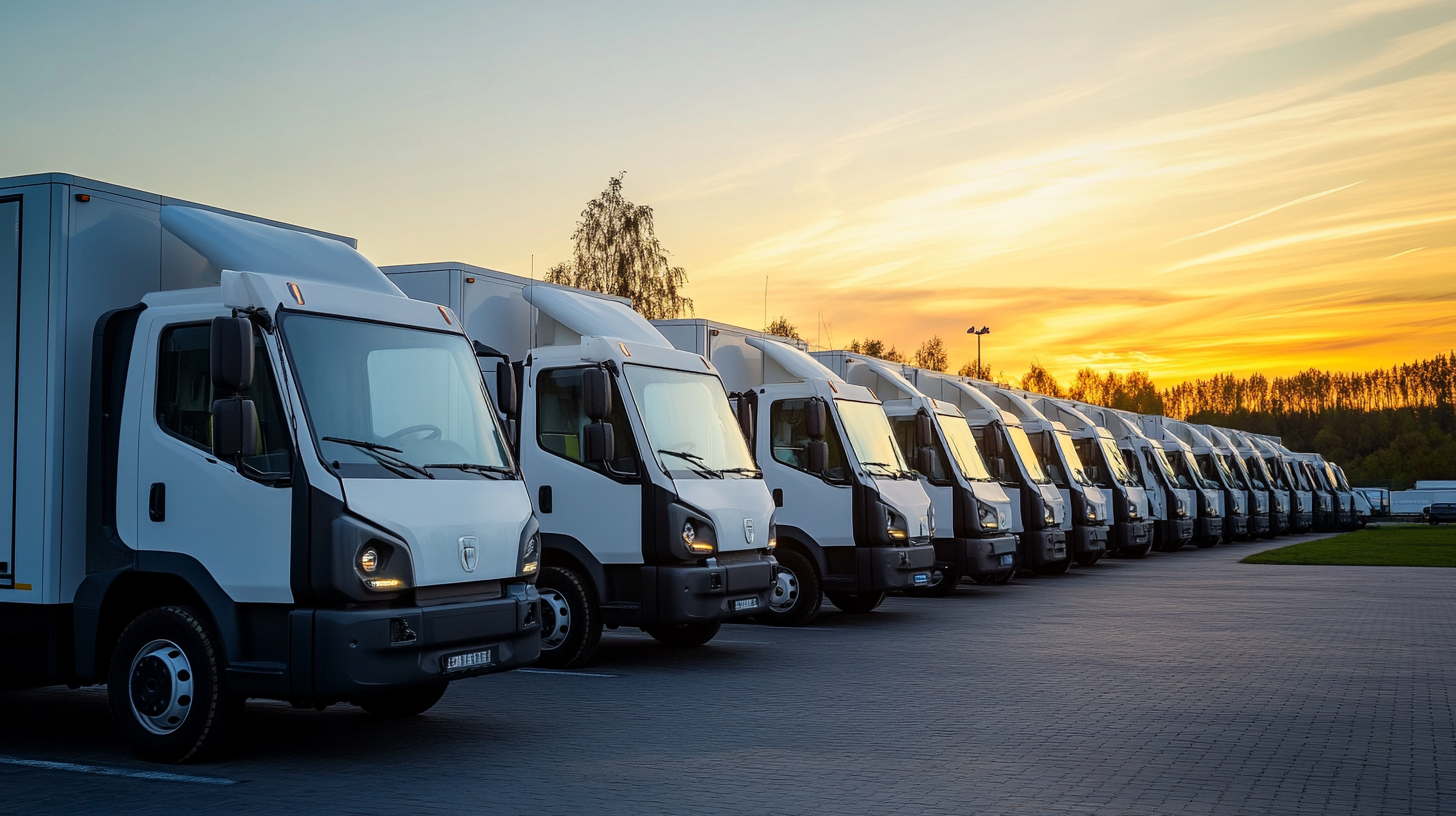Sorry. We did not find anything.
Unlocking the Benefits of E Trucks: A Comprehensive Guide for Your Business
In recent years, the transportation industry has undergone a significant transformation, largely driven by the increasing demand for sustainable and efficient logistics solutions. As businesses strive to minimize their carbon footprints and adapt to stringent environmental regulations, E Trucks have emerged as a compelling alternative to traditional diesel-powered vehicles. This shift not only reflects a commitment to green practices but also presents various operational advantages that can enhance productivity and reduce costs.
E Trucks offer a wide array of benefits tailored to modern business needs, from lower operating expenses and reduced maintenance costs to improved energy efficiency and compliance with clean air standards. As companies explore their transportation options, understanding the unique advantages of E Trucks can empower them to make informed decisions that positively impact their bottom line and contribute to a sustainable future. In this comprehensive guide, we will delve into the various aspects of integrating E Trucks into your business model, highlighting how they can unlock potential benefits and drive your company towards greater success.

Benefits of E-Trucks for Sustainable Business Practices
As businesses increasingly prioritize sustainability, electric trucks (e-trucks) are emerging as a pivotal component of eco-friendly logistics. The transition to e-trucks not only supports corporate responsibility initiatives but also offers tangible economic benefits. According to a recent industry report, e-trucks can reduce operational costs by up to 30% over their lifetime compared to traditional diesel trucks, primarily due to lower fuel prices and reduced maintenance expenses. This economic advantage is compelling, particularly for businesses looking to improve their bottom line while adopting greener practices. Moreover, the shift towards e-trucks is supported by rapid advancements in charging infrastructure, crucial for their widespread adoption. A government initiative in India is set to invest in expanding electric vehicle charging stations across key logistics routes, facilitating a seamless transition for freight operators. With the country's freight sector projected to grow significantly, leveraging e-trucks can position businesses ahead of competitors who may lag in adopting sustainable technologies. Importantly, e-trucks contribute to a reduced carbon footprint, which is increasingly becoming a requirement for suppliers in major industries. Data shows that electrifying heavy-duty trucks can lead to a potential reduction of nearly 1.2 gigatons of CO2 emissions annually by 2040. This not only aligns with global sustainability goals but also bolsters brand reputation among environmentally-conscious consumers and partners, making e-trucks an essential investment for businesses aiming to thrive in the modern marketplace.

Key Features of Electric Trucks That Enhance Operational Efficiency
Electric trucks are revolutionizing the transportation industry by offering unique features that significantly enhance operational efficiency for businesses. One of the key aspects of these trucks is their centralized E/E (Electrical/Electronic) architecture, which simplifies the integration of advanced software solutions. This centralized system not only reduces the complexity of vehicle electronics but also enables real-time data processing, ensuring that fleet managers have access to critical information at their fingertips. The shift towards a software-centric strategy allows original equipment manufacturers (OEMs) to optimize performance, reduce downtime, and improve maintenance schedules.
Another standout feature of electric trucks is their ability to provide cleaner, quieter, and more sustainable operations. For companies committed to reducing their carbon footprint, electric trucks present a viable solution that aligns with corporate sustainability goals. Electric fire trucks, such as the Volterra™ model, are excellent examples of how innovative engineering can meet both operational demands and environmental responsibility. With the ability to perform tasks without the noise and emissions associated with traditional diesel engines, electric trucks are not only better for the planet but also enhance the overall experience for urban communities.
Moreover, enhanced battery technology and regenerative braking systems in electric trucks contribute to extended ranges and lower operational costs. By managing energy consumption effectively, businesses can leverage electric trucks to increase load capacities without worrying about frequent recharging. This efficiency translates into higher profitability and improved service delivery, making electric trucks an indispensable asset for modern fleets. As the industry continues to evolve, the benefits of incorporating electric trucks into business operations will become increasingly apparent, paving the way for a more sustainable future in commercial transportation.

Cost Analysis: E-Trucks vs. Conventional Trucks for Businesses
The transition to electric trucks (E-trucks) brings both opportunities and challenges for businesses evaluating the cost dynamics between E-trucks and conventional trucks. Recent reports indicate a significant shift in the logistics sector, with projections suggesting that by 2035, electric trucks will dominate the logistics market, primarily due to advancements in battery technology and a growing network of charging infrastructure. A report from PwC anticipates that battery electric vehicles (BEVs) will surpass internal combustion engine vehicles within the next decade, marking a pivotal change in the industry.
However, the current market realities reflect some hurdles. General Motors recently announced delays in the production of electric trucks at its Michigan plant due to soft demand for electric vehicles. This decision highlights the cautious approach many companies are taking regarding capital investments against a backdrop of fluctuating consumer interest and economic conditions. Furthermore, Tesla's upcoming Semi truck release is accompanied by concerns about sales challenges stemming from battery costs and charging infrastructure limitations, underscoring the need for strategic planning in adopting E-trucks.
Despite these challenges, there is a silver lining in the development of electric mining trucks in China, which demonstrates a successful scaling of heavy-duty electric vehicles. The introduction of the NTE130E model, featuring advanced lithium iron phosphate batteries, marks a critical advancement in clean technology applications for heavy vehicles. As businesses navigate the costs of E-trucks versus conventional trucks, understanding these developments and market trends will be essential for making informed decisions in their fleet strategies.

Challenges and Solutions in Integrating E-Trucks into Your Fleet
Integrating electric trucks into your fleet is a promising step toward sustainability, but it isn't without its challenges. As the logistics sector undergoes this vital transition, businesses must navigate the complexities of e-truck charging infrastructure and energy costs. The demand for reliable and affordable charging solutions is pivotal, as organizations strive to keep operational expenses in check while maintaining efficiency. This transition not only aims to reduce carbon emissions but also requires a strategic approach to energy management to optimize cost-effectiveness.
Moreover, compliance with regulatory requirements can add another layer of complexity to the integration process. Companies must stay updated with the evolving standards, such as emissions reporting and clean truck checks, which can be daunting without the right tools. Utilizing advanced telematics and automated reporting systems can significantly simplify compliance tasks and minimize downtime, allowing fleets to operate more smoothly and focus on their core logistics functions.
As industry players collaborate to build the essential infrastructure for electric trucking, the importance of innovative partnerships becomes evident. By leveraging new technologies and strategic alliances, businesses can overcome the operational hurdles associated with e-truck deployment. The path toward electric fleets may be bumpy, but with robust solutions in place, companies can pave the way for a successful transition to zero-emission logistics.
Future Trends in Electric Truck Technology and Market Demand
The electric truck industry is on the brink of a revolution, propelled by advances in technology and an increasing demand for sustainable transportation solutions. As businesses look to reduce their carbon footprints, electric trucks are becoming a feasible option not just for local deliveries but also for long-haul logistics. The rising trend of urbanization is placing significant pressure on governments and businesses to transition to greener solutions, making electric trucks an appealing choice for those seeking to remain competitive in the marketplace.
In terms of technology, improvements in battery life and charging infrastructure are paving the way for electric trucks to become more efficient and reliable. Innovations such as fast-charging stations and lightweight materials are enhancing the range and performance of electric vehicles. Furthermore, the development of autonomous electric trucks adds another layer of efficiency, with potential cost savings in labor and increased safety. As these technologies mature, we can expect a surge in market penetration for electric trucks, fundamentally transforming logistics and transportation models.
Market demand for electric trucks is being driven not only by regulatory changes and environmental concerns but also by evolving consumer preferences. Many customers now favor companies that demonstrate social responsibility and sustainability in their operations. As climate change becomes an increasingly pressing issue, businesses that adopt electric trucks are likely to attract a loyal customer base and stand out in a crowded marketplace. The momentum behind electric vehicles is undeniable, and as we move into the future, the integration of electric trucks within fleets could become standard practice rather than an exception.

